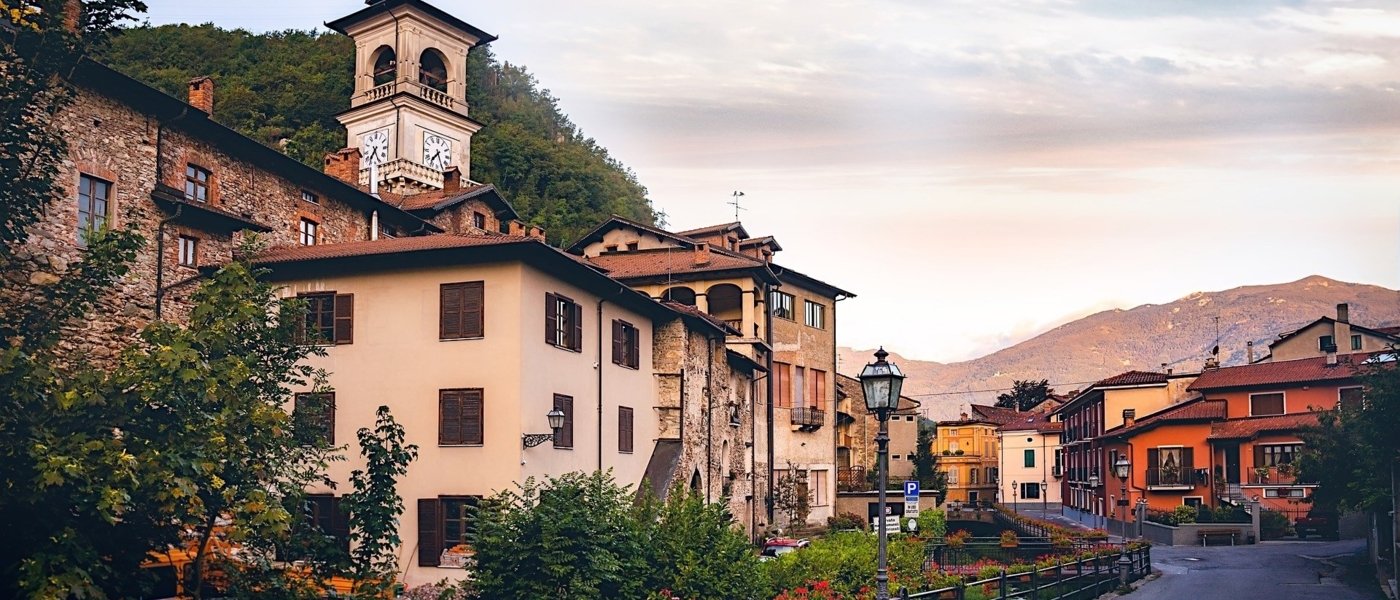While Piedmont is not necessarily the first region that springs to mind when you think of Italy, it has some of the richest wine-making history and some of the country’s greatest wines to explore. The region is home to Barolo, one of the wines dubbed ’King of wines and wine of kings’, produced by some of the best wineries in Piedmont.
Piedmont is located in the north-west of Italy, close to the French border, thus its viticulture was heavily influenced by France, especially Burgundy, meaning that the region produces varietal styles of wine with little blending. In fact, at times parts of the region were under French rule.
Much of the region is mountainous or hilly with the foothills of the Alps forming the border with France and Switzerland, Valle d’Aosta lying to the north, Lombardy to the east and Liguria, the thin strip of land stretching along the coast to the south. Its vast mountainous terrain and the valley of the river Po consume much of the region, leaving only 30% of Piedmont suitable for vineyards. Nevertheless, Piedmont is home to some of Italy’s most densely planted hillsides, its arguably best wines, the highest percentage of DOCG (Denominazione d’Origine Contrallata e Garantita) wines of any region in the country and a host of indigenous varieties.
Grape growing here goes back to the time of ancient Rome and the wine-making industry in Piedmont also played a key role in the early part of the Italian Risorgimento, with key historic figures such as Garibaldi and Cavour owning vineyards and contributing to the development of Piedmontese wine and the improvement of its quality. Large commercial houses, such as Martini & Rossi, one Piedmont winery surely everyone has heard of, and Gancia had already been founded in the late nineteenth century, followed by many others at the turn of the century. Many wineries in Piedmont, Italy, especially around the towns of Alba and Asti have almost unbroken vintages dating back more than 100 years.
Some of the best wineries to visit in Piedmont are located in the fertile hills of the Langhe, home to the mighty Barolo and Barbaresco, produced from the highly tannic Nebbiolo grape, which may need up to 10-15 years to become more approachable. Its red bedfellows are Barbera, the most widely planted variety, and Dolcetto, both of which are more accessible earlier. The River Tanaro runs through the Langhe bringing fog in the autumn, which burns off during day, but allows the grapes above the mist to ripen more effectively, important for the fickle Nebbiolo in this essentially continental climate.
Although Piedmont is definitely red wine territory, sparkling wine, aka frizzante and spumante, were long-time drivers of the Piedmontese economy. The delicately sweet Moscato d’Asti and Asti Spumante thus also find their home in the region, Alta Langa also produces crisp, metodo classico sparkling wine from Chardonnay and Pinot Noir, and there is also a range of sweet red sparklers produced from local grapes such as Brachetto or various red Malvasias.
A tour of the best wineries in Piedmont would not be complete without heading to Gavi to sample the zingy white wines made from the Cortese grape, or travelling north of Turin, the region’s capital, into the Alpine foothills to sample Barolo’s cousins, the northern Nebbiolos of Ghemme, Gattinara and Carema. Those looking for something more unusual should make a stop en route at a Piedmont winery in Caluso to taste the spicy, herbal white Erbaluce, produced in dry, metodo classico and sweet passito versions. The passito version takes five years to make, but reportedly tastes best after a further fifty years.
It seems Piedmontese wines are designed for those with an infinite amount of patience.
At Wine Paths, our local expert can arrange the finer details of exclusive visits to some of the best wineries in Piedmont.








